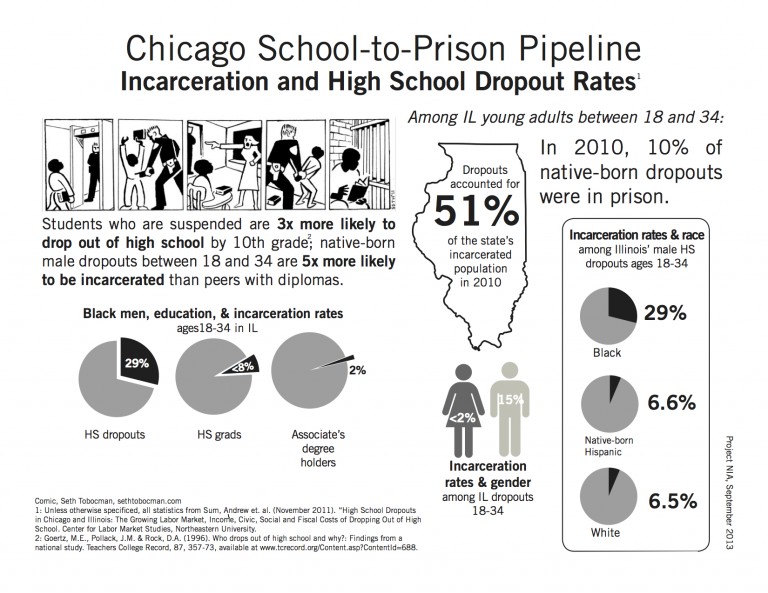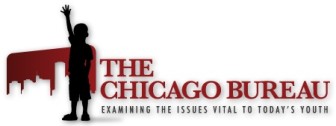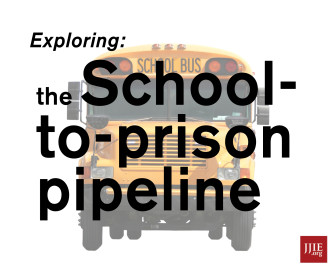
Graphic showing the tough path facing minors who drop out of school or work and the high racial disparity among those arrested. Courtesy of Project NIA.
CHICAGO — The White House sent a message to schools across the country Wednesday to abandon severe discipline policies shown to criminalize students for infringements that could be handled without law enforcement.
A series of guidelines issued Wednesday on behalf of the Obama Administration recognized a phenomenon advocates of school discipline reform call the school-to-prison pipeline.
 The theory goes that when schools employ zero-tolerance policies on wide-ranging behavioral infractions including truancy, drug use, fighting and weapons possession, they may choose to suspend students or charge them with criminal offenses rather than mediate the problem in school. These strict sanctions interfere with students’ potential to succeed academically and increase their chances of running afoul of the law.
The theory goes that when schools employ zero-tolerance policies on wide-ranging behavioral infractions including truancy, drug use, fighting and weapons possession, they may choose to suspend students or charge them with criminal offenses rather than mediate the problem in school. These strict sanctions interfere with students’ potential to succeed academically and increase their chances of running afoul of the law.
According to the Department of Education, the school-to-prison pipeline also disproportionally affects minority students, with black children more than three times more likely than their white counterparts to be expelled or suspended.
At the same time, a letter that the Department of Education sent to schools along with the proposed policy changes noted that research has shown minority students do not misbehave more frequently than white students.
“A routine school disciplinary infraction should land a student in the principal’s office, not in a police precinct,” Attorney General Eric Holder said, according to a news release.
 The guidelines for a more progressive discipline policy call for re-educating school officials about how to handle disputes themselves rather than delegating the job to law enforcement. They advise administrators to distinguish the exact responsibilities of school security officers and mark the difference between minor infringements and major security threats. Schools should also supervise law enforcement aggregation of student data, according to the nonbinding recommendations.
The guidelines for a more progressive discipline policy call for re-educating school officials about how to handle disputes themselves rather than delegating the job to law enforcement. They advise administrators to distinguish the exact responsibilities of school security officers and mark the difference between minor infringements and major security threats. Schools should also supervise law enforcement aggregation of student data, according to the nonbinding recommendations.
After the Columbine High School mass shooting in 1999 and more recently the Sandy Hook Elementary shootings last year, schools across the country have heightened their police presence. The Obama Administration’s new guidelines on disciplinary measures seek to relax the punitive power of these security forces.
This story produced by The Chicago Bureau